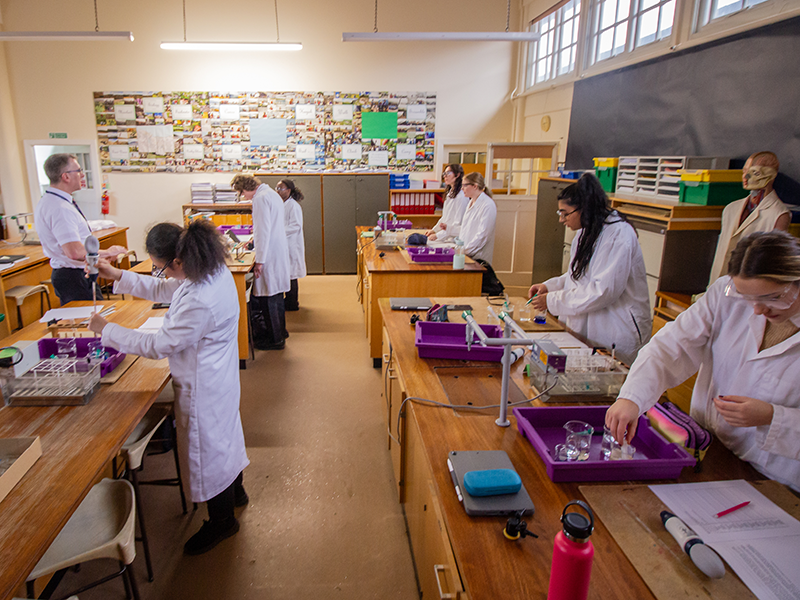A-Level Chemistry



A-Level Chemistry
Chemistry continues to shape the modern world with discoveries of new elements over the last decade. While most of us have grown up thinking chemicals are bad for us, it is vital to understand the role of chemicals in various industries such as energy, agriculture, automotive, petrochemical and pharmaceutical. It has led to the discovery of alternative sources of power, better productivity of crops and life-saving drugs including antibiotics, painkillers and cancer treatment. This makes Chemistry a rather challenging but an extremely rewarding subject.
Department Staff: Nayyar Aziz and Daniel Jones
Advanced Level GCE Chemistry
Exam Board: AQA
Syllabus code: 7405
The course comprises Physical Chemistry, Inorganic Chemistry and Organic Chemistry. Physical Chemistry covers topics such as atomic structure, bonding, energetics, kinetics, chemical equilibria, oxidation, reduction and redox equations, thermodynamics, acids and bases, and equilibrium constants. Inorganic Chemistry covers periodicity, the alkane earth metals, halogens, properties of period 3 elements and their oxides, transition metals and reactions of ions. Organic Chemistry covers topics such as alkanes, halogenoalkanes, alkenes, alcohols, organic analysis, isomerism, aldehydes and ketones, amines, polymers, amino acids, proteins and DNA, chromatography, and nuclear magnetic resonance spectroscopy.
Students complete regular practical activities which provide opportunities to develop essential technical skills and better understand the chemical concepts. Practice work includes: volumetric analysis, enthalpy changes, measuring rates of reactions, identification of cations and anions, distillation of organic products, testing for organic functional groups, measuring electromotive forces of electrochemical cells, organic synthesis, and thin-layer chromatography. Students are assessed on their competencies throughout the A level course.
This is a linear qualification and students sit all examinations at the end of the course. There are three papers which have short and long answer questions. Paper 3 includes a greater emphasis on practical techniques and data analysis and also has a multiple choice section. At least 20% of the marks in assessments for Chemistry will require the use of mathematical skills.




